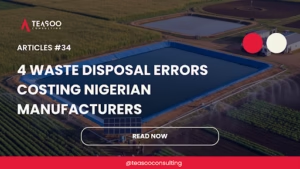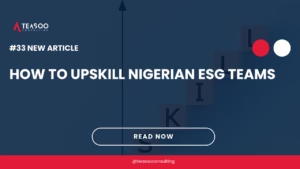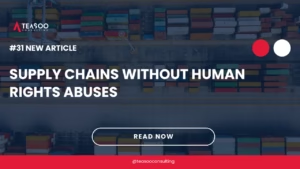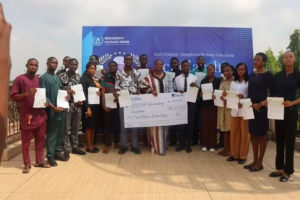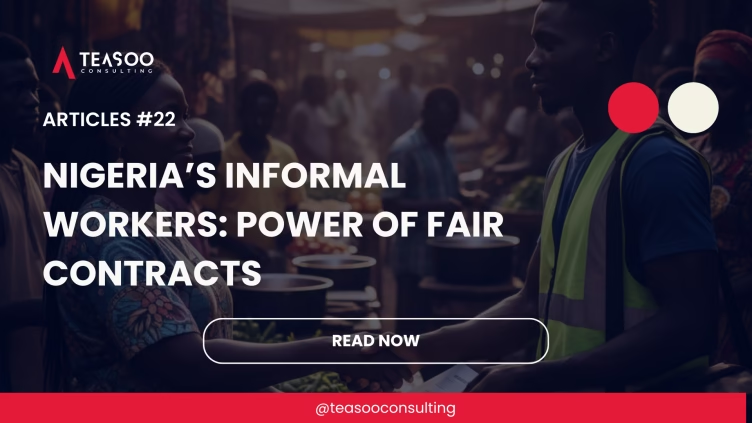
Millions of Nigerians earn their living in the informal economy, such as traders, artisans, gig workers, drivers, market women, and day labourers, accounting for over 80% of employment. They are the backbone of our economy, yet most work without contracts. This leaves them vulnerable to late payments, sudden termination, or unfair treatment.
For businesses, this isn’t just a social issue; it’s a business risk. When workers feel unprotected, they move on quickly. Productivity drops. Turnover rises. The cycle repeats.
Fair contracts are a simple but powerful tool to change this.
Why Fair Contracts Matter
- Recognition and dignity: contracts acknowledge the value of workers’ contributions.
- Financial security: payment terms reduce the stress of delayed or denied wages.
- Opportunity: with contracts as proof of income, workers can access loans, insurance, and social benefits.
- Stability: less conflict and fewer disputes
Challenges to Contract Implementation
While fair contracts hold promise, several barriers exist:
- Low Literacy Levels: Many informal workers may not fully understand contract language.
- Distrust and Power Imbalance: Workers might fear retaliation or lack bargaining power to demand contracts.
- Cultural Norms: Informality is embedded in social practices that favor flexible, informal arrangements.
- Lack of Enforcement: Weak regulatory frameworks make contract enforcement difficult outside formal settings.
Why Small Businesses Must Embrace Fair Contracts
Fair contracts are not just good for workers; they make good business sense.
- Workers who feel secure stay longer and are more productive.
- Customers and communities respect businesses that treat people fairly.
- Transparent practices open doors to investors and partnerships.
- Clear agreements reduce disputes that drain time and resources.
By embedding fairness into everyday business dealings, small businesses can improve livelihoods and protect themselves from costly turnover.
Practical Steps We Can Take
- For firms: keep contracts simple, clear, and easy to understand. Pay promptly. Make procurement processes open to informal workers.
- For local governments: provide template contracts in local languages, support SMEs with legal advisory services, and recognise businesses that adopt fair practices.
- For Civil Society & NGOs: Provide training and legal aid to informal workers to understand and enforce contracts.
The ESG Connection: More Than Compliance, It’s About Impact
This is where the “S” (social) and “G” (governance) in ESG come alive. Fair contracts are about accountability, fairness, and inclusion. They protect people, strengthen businesses, and build more resilient economies. Nigeria’s informal workers deserve dignity. Small businesses deserve stability. Fair contracts are the bridge that delivers both.
At Teasoo Consulting, we help businesses and governments translate ESG principles into practical solutions, including fair, workable contract frameworks. If this is a conversation you’d like to explore, let’s connect.

